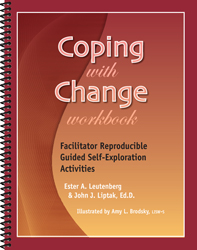 The word “improv” scares people. To most, the idea of getting up in front of an audience and making up stuff on the spur of the moment seems like a form of torture instead of a fun way to pass a few hours while learning important life skills.
The word “improv” scares people. To most, the idea of getting up in front of an audience and making up stuff on the spur of the moment seems like a form of torture instead of a fun way to pass a few hours while learning important life skills.
I’ve been incorporating improv games into my workshops for years without letting anyone know that’s what we’re doing (it’s kind of like mixing spinach in with the mashed potatoes and not telling anyone). The participants always have fun and go away with important life skills. Last spring I started teaching an improv class for my local community college and can honestly say – as a person who laughs a lot already – that I’ve never giggled, snorted, guffawed, and rolled on the floor laughing as much as I did during the two hours I spent teaching (and playing with) that class every week. The mean age of the class was around 58 and the “students” held nothing back and really enjoyed their 10-weeks of remembering how to be childlike.
Rather than running screaming from improv, it might help to look at a definition. Improv is the practice of acting and reacting, of making and creating, of being fully in the moment and with the people you are with. Improv helps us think and act on our feet, respond to changing circumstances, generate new and different ideas, become more flexible and spontaneous, and strengthen our sense of humor. Now tell me that doesn’t sound like something that would make your life better while reducing your stress!
Even if you never take an improv class, here are some rules you can apply to your everyday life to have less stress and more fun:
- Be playful, not competitive. Working and playing together is not only more productive than always trying to one-up the next person, it also improves your attitude towards those you work with.
- Always pay complete attention to what is going on around you. Yes, that does mean you should put down your Smartphone and back away from your computer when you’re engaging with another human being, whether in person or on the phone. Your mind cannot be in two places at one time any more than your body can.
- Work with your intuition, your heart, and your emotions. Before making daily decisions, think about where they will lead and whether they’ll make you and the people in your life happy or less so.
- Take risks and become comfortable with being uncomfortable. By this I don’t mean you should bungee jump naked from a motorcycle as you jump the Grand Canyon. What I do mean is that you should take more little risks in your everyday life. I’ll give you an example: I can hold my own during karaoke, but when it comes to “real” singing, I know my limitations. I’m breathy and often a little flat. That, however, did not stop me from recently writing and recording my first song. And I had the time of my life. Whenever we feel uncomfortable in a situation, we’re being ruled by our ego, the part of our mind that tries to keep us from appearing foolish. But appearing foolish can be an amazingly freeing experience.
- Be truly involved in what’s going on, rather than thinking about it like as outsider. Many of us live as if our lives are on hold. When I get my doctorate… when I get married… when I buy my first house… when the aliens beam me aboard… then I can get on with my life. Fully commit to every day, every moment, and you’ll not only get more accomplished, you’ll be more grateful for every step of the journey.
- Use your entire body, not just your head. One of the reasons 5-year-olds laugh so much more than grown-ups is that they use their bodies for play. We adults tend to use our bodies to transport our heads around and complain about the trip. The more you can play every day (and no, jogging, while good for you, isn’t considered “play”), the more fun you’ll have.
- Accept and move forward. Rather than questioning every idea or suggestion made by others just because they weren’t yours, join in and see what happens. Add your own touch, but don’t destroy an idea just because it’s not yours.
- Eliminate excuses. Rather than whining, “I feel stupid,” “I don’t understand,” or “I’ll wait and let others try before I join in,” just go for it. Or provide your own responses. “I feel stupid.” So? There are worse things in life. “I don’t understand.” Maybe you will if you join in the activity and see what it’s all about. “I’ll wait and let others try first.” Would you say the same if they were giving away free money or donuts? I thought not!
And if you decide that perhaps an improv class may be just what you need to turn your life around, check out your local community college. Here in Eugene, my next class starts on September 29th and is offered through Lane Community College.
–Leigh Anne Jasheway-Bryant, MPH, is a stress management and humor expert, comedy writer, stand-up comic, and comedy instructor/coach.

